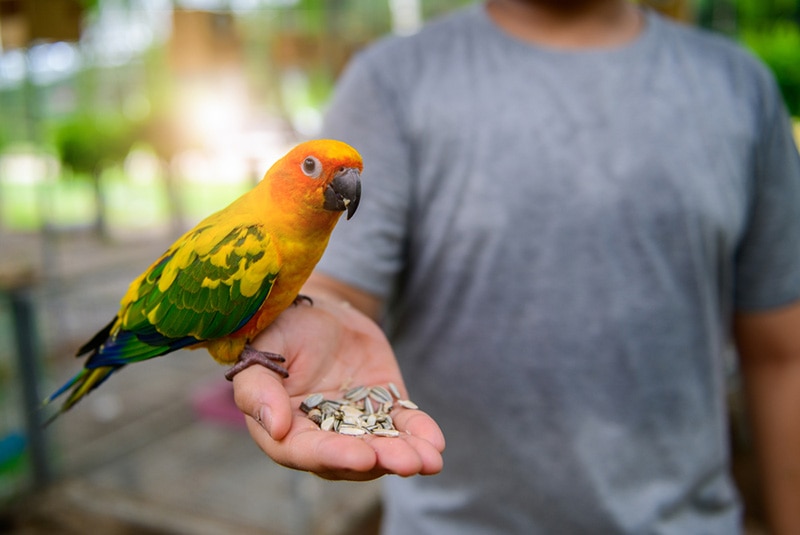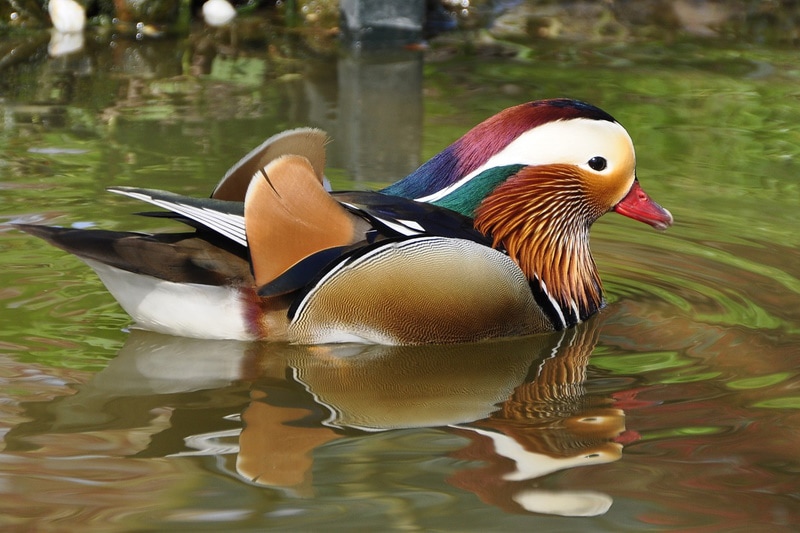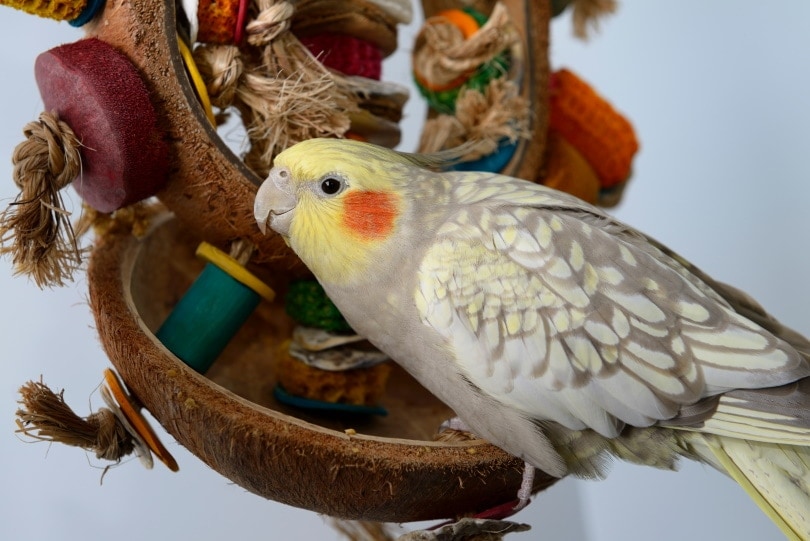Can Parakeets Talk? Factors & Training Tips
Updated on

Click to Skip Ahead
If you’ve been planning on bringing a parakeet home, you might be wondering about their talking capabilities. Since they are technically parrots, you might assume that they can learn to speak.
Parakeets can indeed learn to talk, but some might only say a few words, while others can amass an extensive vocabulary.
Let’s look at the different species of parakeets and how well they talk, along with a few tips on how to teach them.
Information About the Parakeet
Before we get into the different species of parakeets, let’s start by clarifying that budgerigars (budgies) are the same birds as parakeets.
They are typically only called parakeets in the United States and are known as budgies almost everywhere else. That said, there are two taxonomical tribes for the parakeet: Platycercinae and Psittaculini.
The parakeets belonging to the Platycercinae subfamily are found in New Zealand, Australasia, and Australia, as well as nearby islands. There are about 40 species in this tribe, to which the budgie (Melopsittacus undulatus) belongs. They are one of the most popular parakeet species because they are easily tamed and sociable.
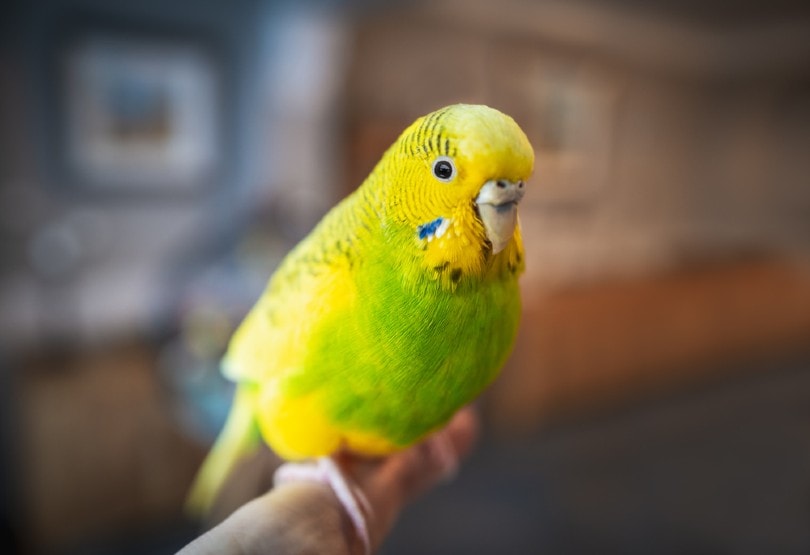
What Species of Parakeets Talk the Best?
There are quite a number of parakeet species, and some can talk better than others.
1. Common Parakeet or Budgie
One of these birds holds the Guinness World Record for Largest Vocabulary for a Bird Ever.1 Until the time of his death in 1994, a budgerigar from California by the name of Puck knew 1,728 words!
There was another budgie named Sparkie Williams that until his death in 1962, held the previous record for knowing 531 words and 383 sentences!
2. Quaker Parakeet
These birds, also called Monk Parakeets, are quite adept at picking up words quickly. They won’t learn as many words as the budgie, but they speak with clearer voices and are capable of learning more than 50 words.
They have also been known to mimic common sounds in the household, such as barking dogs.
3. Derbyan Parakeet
This is a rare bird, and they are one of the largest of the parakeets. They are known to develop a modest vocabulary and can use sentences appropriately.
Basically, they can learn to make their demands known—if they want to eat, sleep, or play, they will tell you!
4. Indian Ring-Necked Parakeet
These birds, also known as Rose-Ringed Parakeets, are considered among the best talkers of the parakeets. They can learn long phrases in addition to short words. They are also able to speak with clarity.
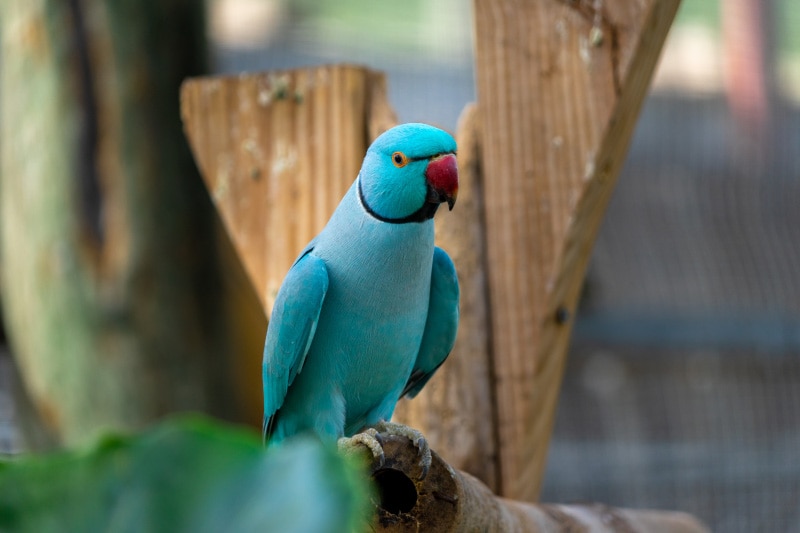
The 4 Factors That Can Influence Your Parakeet to Talk
It’s important to note that even if you bring home a parakeet known to be a talker, several factors can make a difference in how much your parakeet will actually talk.
Even if everything lines up and your parakeet should be talking up a storm but isn’t, it’s important to remember that there is no guarantee. Each bird is unique.
1. Age
This is a universal thing for practically any species. But the younger your parakeet is, the more likely they will take to training and learn to talk.
Roughly 10 weeks of age is when a young parakeet is ready to leave the nest. Hand-raising a parakeet before they’ve had their first molt is a good age, and they are more likely to learn to talk.
2. Sex
Both sexes can learn to talk, but male parakeets tend to talk more and better than females. It’s likely because males must vocally attract the attention of females for reproduction purposes.
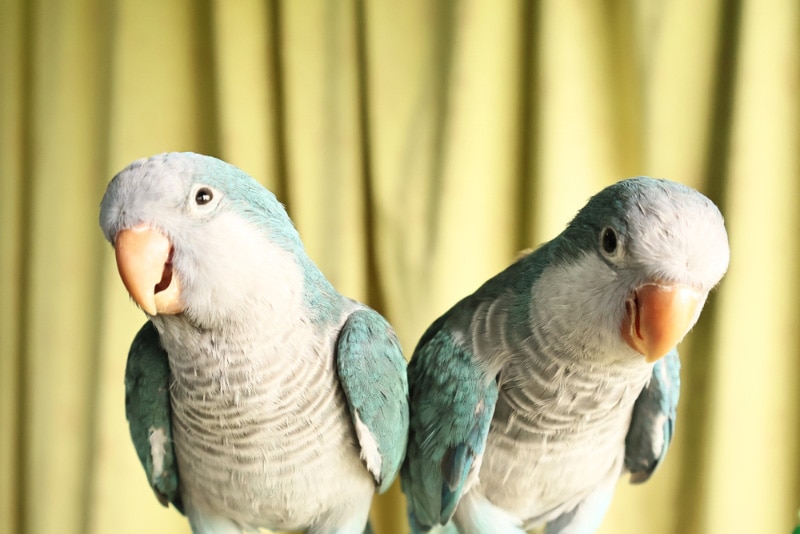
3. Strong Bond
Forming a strong bond with your parakeet is essential, anyway, but it can also help with the training and talking. Having two birds is best if you know that you’ll be away from home often. That said, only having one bird will form a stronger bond between you, which will make talking with you come more easily.
As soon as you bring home your bird, start encouraging them to perch on your finger and shoulder. The more comfortable and relaxed your parakeet is in your presence, the more likely they’ll communicate with you.
4. Socialization
The better and longer your bird has been socialized with people, the more likely your parakeet will look at you as being a flock mate. Birds talk to each other when they are flock mates, so if you are viewed as one, they are much more likely to want to imitate your voice.
This is where purchasing your young parakeet from a reputable breeder is essential. This way, your bird will be comfortable around humans and is likely already starting to talk.
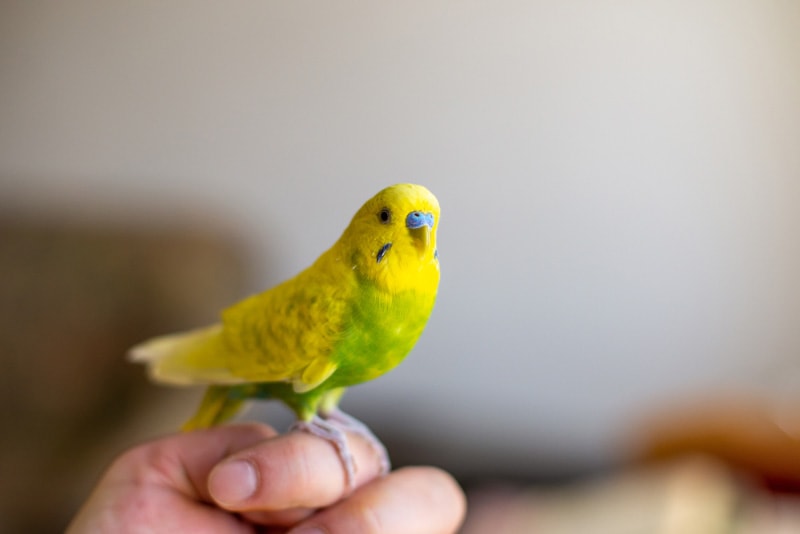
The 6 Training Tips for Teaching Your Parakeet to Talk
There are several things to try when you’re teaching your bird to talk. If your parakeet isn’t comfortable sitting on your finger yet, you can still tackle the training by speaking to them when they are in the cage.
1. Happiness
Your parakeet must be in good health and generally happy. Ensure that they have a big enough cage and a good diet. An unhappy or ill bird won’t be interested in learning anything.
Happy parakeets will be energetic and vocalizing frequently. See your vet if they seem lethargic and their feathers aren’t looking healthy.
2. Simple Words on Repeat
You should always start with simple words—nothing complicated, especially not when you’re just starting.
Think of your parakeet as a young child: Name things in your parakeet’s immediate environment and repeat the same word. Say “hello” every time you see your parakeet and “goodbye” when you leave. You can also say “thank you” when you give your parakeet a treat.

3. One at a Time
Words that are too long or contain multiple vowels might be too difficult for your bird. Always speak clearly and only teach them one word at a time. You can move on to a new word once it seems that your parakeet has learned one.
It might take up to 2 months to teach just one word, though this depends on the individual bird. This type of training requires a great deal of patience on your part.
4. Treats
All animals love treats, and they can be a huge advantage during the training process. When your parakeet is picking up a word, give them a food treat or a new toy.
In the process, you’ll also get to know your parakeet and what they love most, so figuring out what kind of treat they’ll respond to most shouldn’t be too difficult.

5. Paying Attention
You should check to ensure that your parakeet is paying attention before starting a training session. They should be perched on or close to you, and their pupils might dilate. They might stop any vocalizing that they are doing when you start talking.
It’s also important to make sure there aren’t many distractions going on, which includes noise from outside. Most parakeets have a fairly short attention span.
6. Routine
You can try picking a time of day that works best for both of you. Mornings are a good time (after your and your bird’s breakfast) because parakeets tend to be more alert at this time.
Plan on keeping your training sessions short; aim for no more than 30 minutes a day. Patience is key, particularly if your bird seems to be taking a long time to learn a word.
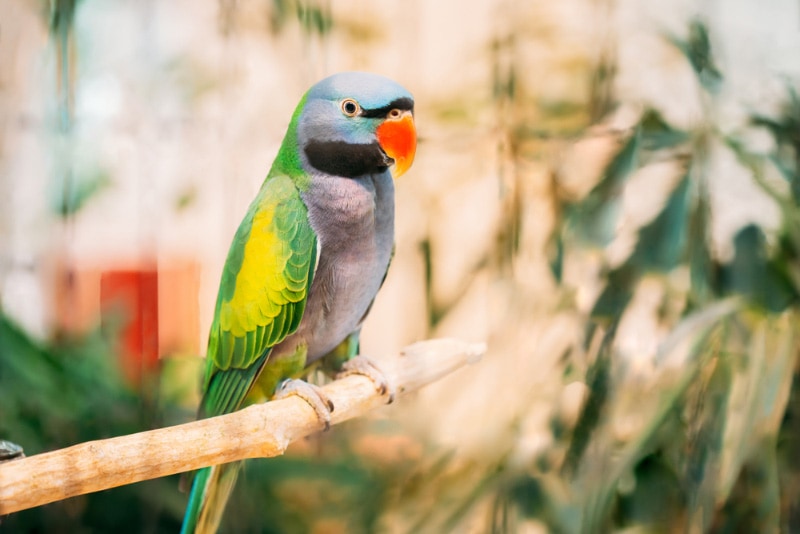
Conclusion
One of the first words that you could teach your parakeet is their name. It will help if the name is short and easy for your bird to say. Regardless, parakeets/budgies are excellent birds if you’re looking for one that talks. They are also great for beginners.
Just remember that not every parakeet can build a large vocabulary. This is particularly true if you bring home a rescued bird. In a case like this, though, building a relationship with them is far more important than teaching them to speak.
Still, plenty of love, patience, treats, and repetition might just lead to great communication between you and your parakeet.
Featured Image Credit: New Africa, Shutterstock


